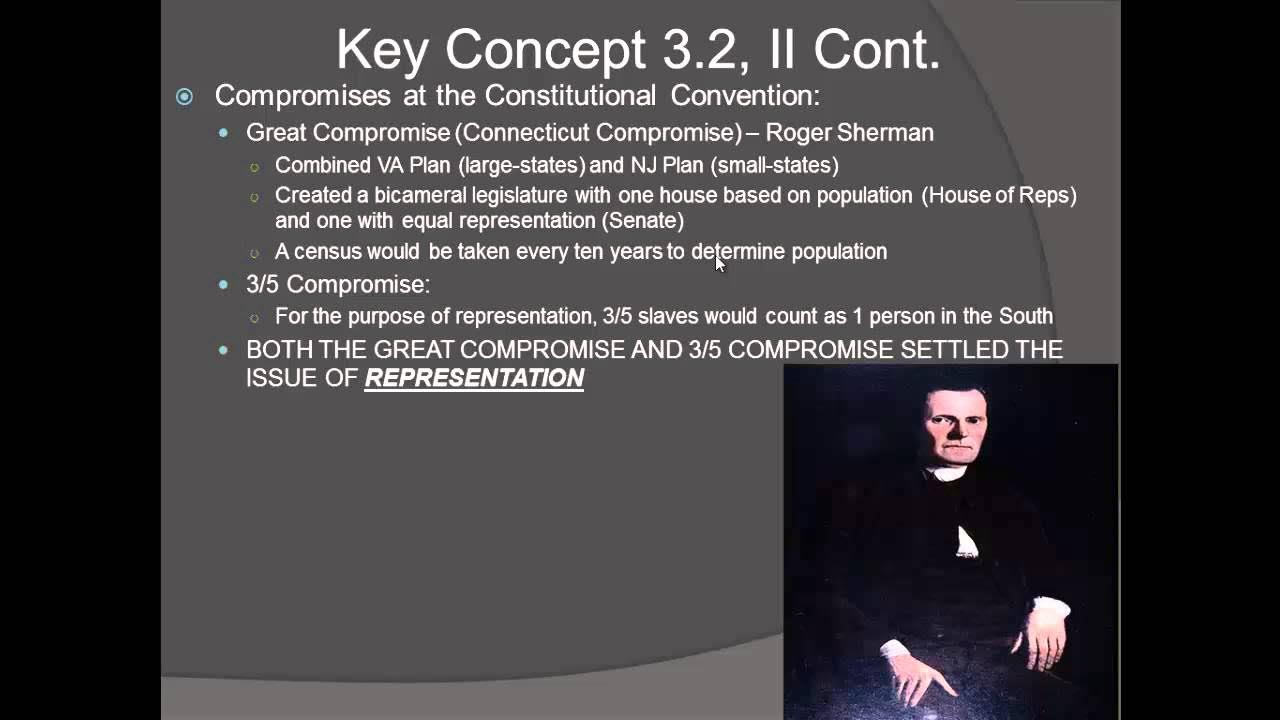Contextualizing the American Revolution (APUSH Unit 3 - Key Concept 3.1)
Summary
TLDRThis video covers Time Period 3 (1754-1800) in U.S. history, which is critical for understanding the formation of the United States. It discusses the causes of the American Revolution, including British efforts to assert tighter control over the colonies after the French and Indian War, through taxes and restrictions like the Proclamation of 1763. The colonial response, fueled by Enlightenment ideas and a desire for self-government, led to rebellion and eventual independence. Key documents like the Declaration of Independence and the Constitution were also written during this transformative time.
Takeaways
- 📜 The time period from 1754 to 1800 is crucial because it's when the USA becomes the USA, with key documents like the Declaration of Independence, the Constitution, and the Bill of Rights being written.
- 📚 This period is important for the AP U.S. History exam, as it’s the first of the six time periods covered in the DBQ, making up around 12% of class time.
- ⚔️ The period starts with the French and Indian War in 1754, which set off the chain of events leading to the American Revolution.
- 🗳️ By 1800, the United States was taking its first steps as a new republic, marked by Thomas Jefferson's victory in a bitter election.
- 🇬🇧 British attempts to tighten control over the colonies, such as taxation and limiting westward expansion, were key causes of the Revolutionary War.
- 💰 The British imposed taxes like the Stamp Act, Sugar Act, and Tea Act after the French and Indian War to pay off war debt, which led to colonial resistance.
- 🚷 The Proclamation of 1763 was an attempt by the British to limit westward expansion, which further fueled colonial discontent.
- 🧠 Enlightenment ideas, especially social contract theory, played a major role in the ideological foundation of the American Revolution, arguing that a king who breaks the law can be overthrown.
- ✊ The American Revolution was not just about taxes but also about Enlightenment ideas of governance and self-rule.
- 🏛️ Key Concept 3.1 from the AP curriculum blames British overreach, combined with colonial rebelliousness, as the main causes of the Revolution.
Q & A
What time period does the video cover, and why is it significant?
-The video covers the time period from 1754 to 1800, which is significant because it marks the formation of the United States, including the drafting of key documents like the Declaration of Independence, the Constitution, and the Bill of Rights.
Why is the period from 1754 to 1800 critical for the AP U.S. History exam?
-This period is critical because it is the first of six time periods covered on the DBQ (Document-Based Question) section of the AP U.S. History exam, with about 12% of the class time dedicated to it.
What major event began in 1754, and why is it important?
-The French and Indian War began in 1754. It is important because it set off the chain of events that led to the American Revolution by increasing tensions between Britain and its colonies.
How does the video explain the cause of the American Revolution?
-The video attributes the American Revolution to Britain's attempts to exert tighter control over the colonies after the French and Indian War, combined with the colonies' desire for self-government.
What does the phrase 'no taxation without representation' refer to?
-It refers to the colonial argument that they should not be taxed by the British government without having representation in the British Parliament.
What is the significance of the Proclamation of 1763?
-The Proclamation of 1763 was an attempt by Britain to stop westward migration of colonists, which angered many Americans and contributed to the growing resentment toward British rule.
What role did Enlightenment ideas play in the American Revolution?
-Enlightenment ideas, particularly social contract theory, played a key role in the revolution by providing an intellectual basis for challenging British authority and justifying the colonists' desire for independence.
What were the two main causes of the American Revolution according to the video?
-The two main causes were Britain's attempts to assert tighter control over the colonies after the French and Indian War, and the colonists' rebellious response, fueled by Enlightenment ideas.
How did the outcome of the French and Indian War lead to tensions between Britain and its colonies?
-After winning the war, Britain incurred significant debt and attempted to tax the colonies to help cover the costs. These taxes, along with restrictions like the Proclamation of 1763, caused resentment and resistance from the colonists.
Why does the video describe the American Revolution as a story of 'bad government'?
-The video describes the revolution as a result of poor leadership from Britain, particularly from a stubborn king who was out of touch with the needs and desires of the American colonies.
Outlines

This section is available to paid users only. Please upgrade to access this part.
Upgrade NowMindmap

This section is available to paid users only. Please upgrade to access this part.
Upgrade NowKeywords

This section is available to paid users only. Please upgrade to access this part.
Upgrade NowHighlights

This section is available to paid users only. Please upgrade to access this part.
Upgrade NowTranscripts

This section is available to paid users only. Please upgrade to access this part.
Upgrade NowBrowse More Related Video

APUSH Review: Key Concept 3.2 (Period 3)

AP US History Study Guide: Period 3 - 1754 to 1800

APUSH Period 3: Ultimate Guide to Period 3 APUSH

SEJARAH PERADABAN ISLAM (periode klasik hingga modern)

Origin and Evolution or History of Accounting

Regional attitudes about slavery, 1754-1800 | US history | Khan Academy
5.0 / 5 (0 votes)